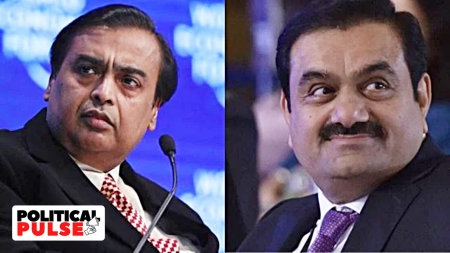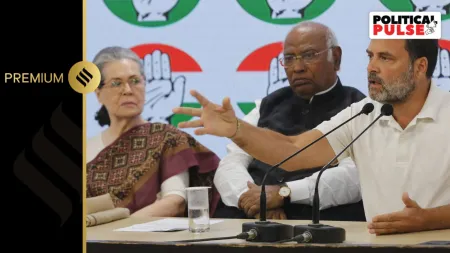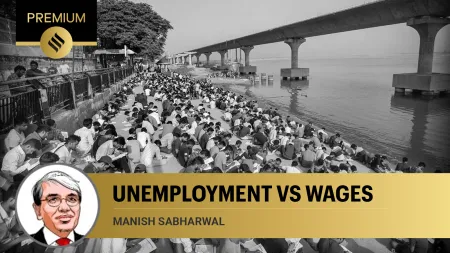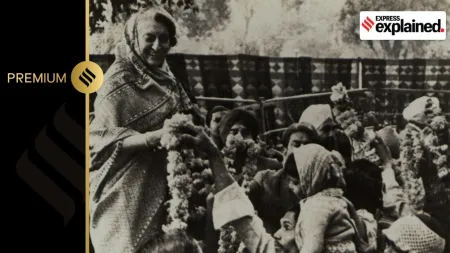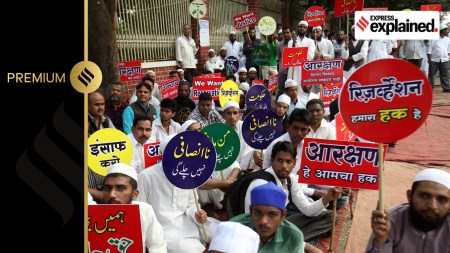- India
- International
Strides in education but report flags students struggling in Class 9
Passing class 9 is a stumbling block in the journey of students because till class 8, they cannot be held back in a class regardless of ability or test results due to the ‘no-detention policy’.
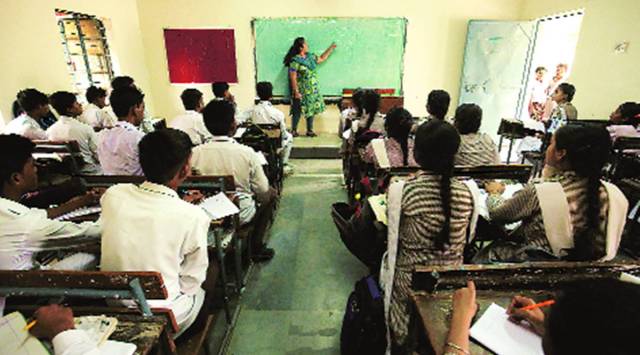 Is it surprising, then, that today’s classrooms are in dire need of a “qualitative transformation” that will bring them to life and regenerate democracy?(Express Archive)
Is it surprising, then, that today’s classrooms are in dire need of a “qualitative transformation” that will bring them to life and regenerate democracy?(Express Archive)The Delhi government has managed to make strides in the field of education by engaging and motivating stakeholders, but more needs to be done to ensure students clear Class IX, and there may be a need to assess the practice of grouping students in sections based on academic performance, a report on the government’s education interventions has found.
The report, ‘School Education Reforms in Delhi 2015-2020’ by the Boston Consulting Group, was released Monday on the first day of Delhi government’s international conference on education.
While recording improvement in certain outcome parameters such as board examination pass percentages and a 10-20% annual improvement in foundational competencies among students in class VI to VIII, it notes: “In our view, the biggest challenge for Delhi is that the class 9 pass percentage is still as low as 57.8% (for 2018-2019) and has not improved significantly despite the learning reforms in classes 6 to 8.”
Passing class 9 is a stumbling block in the journey of students because till class 8, they cannot be held back in a class regardless of ability or test results due to the ‘no-detention policy’.
The report also found that a majority of the students who failed class IX could not benefit from a meaningful alternate opportunity through the “Modified Patrachar Scheme” through which students who failed class IX twice can clear the class X exam through the CBSE’s Patrachar (correspondence) mode and then seek readmission in regular school.

Along with low enrolment, it found a pass percentage of 27-32% among the students who were shifted to correspondence mode.
Despite these gaps, the report maintains that the ground covered by the government in the last few years is a significant start to ‘system strengthening’ or creating the conditions for sustained gains in the future. While highlighting well-publicised interventions such as infrastructural development, teacher training, foundational learning interventions and the introduction of new curricular elements such as the Happiness Curriculum and the Entrepreneurship Mindset curriculum, it states: “In our view, the true impact of Delhi’s reforms has been vitalising the entire system and infusing a sense of renewed aspiration, belief, and deep motivation into every stakeholder — be it the parent, the student, the teacher, the HM (head master/mistress) or the administrator… The degree to which this has happened in Delhi is not something that we have seen in any other seemingly similar education transformation efforts across the country.” The report observed that the government achieved this by aligning all officials, principals and teachers to a common vision and action plan; building a “culture of celebration and recognition”; and interaction with and involvement of parents.
One area in which the surveyors have found a notable lack of confidence during its survey with teachers is in the government’s intervention of grouping students into sections based on their learning levels through the Chunauti scheme. As much as 55% of 3,883 surveyed upper-primary teachers said that students in Nishtha and Neo-Nishtha (sections for weaker students) feel discriminated and 36% said that parents dislike or have strong opinions on such grouping. Of these 3,883 teachers, 31% had responded that such grouping should be removed, while 38% had responded that it should be followed for just one or two periods in a day.
May 10: Latest News
- 01
- 02
- 03
- 04
- 05


